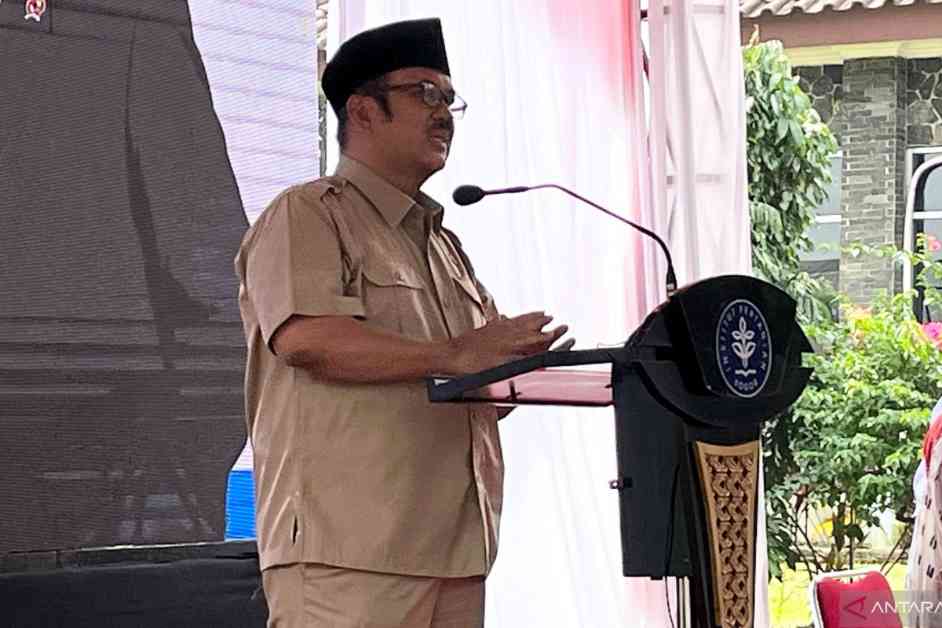National Development Planning Minister Rachmat Pambudy recently highlighted the impact of the Free Nutritious Meals (MBG) program on education participation in Indonesia. Speaking at the launch of a Center of Excellence (CoE) at the Agribusiness and Technology Park (ATP) of IPB University in Bogor, West Java, Pambudy emphasized the program’s ability to enhance student attendance and diligence in school.
Pambudy pointed out that Indonesia’s MBG program, which targets students up to the senior high school and special school levels, has a broader scope compared to similar initiatives in 139 other countries. However, he acknowledged the significant challenge posed by the large number of beneficiaries, with 92.78 million individuals and 26,508 nutrition fulfillment service units (SPPG) required to support the program effectively.
President Prabowo Subianto has been a longstanding advocate of the MBG program, underscoring his commitment to promoting the health and well-being of children, pregnant women, and future generations of the nation. Pambudy noted that this initiative, now a top priority for the government, plays a crucial role in safeguarding the health of expectant mothers and infants while contributing to the development of a healthier and more intellectually engaged Indonesian populace.
Moreover, Pambudy highlighted the program’s positive spillover effects on various sectors, including the growth of micro, small, and medium enterprises (MSMEs), increased agricultural and fishery production, and job creation. He stressed the importance of conducting regular monitoring, evaluation, impact assessments, and data integration to ensure the program’s sustainability and effectiveness.
Center of Excellence for Innovation
In a bid to further enhance the MBG program’s impact, IPB University established a Center of Excellence (CoE) to serve as a dedicated space for developing and testing innovative protocols tailored to address the evolving challenges and emerging needs of the initiative. Rector Arif Satria underscored the strategic significance of this program in facilitating the nutritional improvement of Indonesian children and expectant mothers, emphasizing the pivotal role of the CoE in driving continuous innovation and improvement.
Satria expressed optimism about the CoE’s potential to advance the program’s objectives through cutting-edge research, experimentation, and knowledge-sharing. By leveraging the expertise and resources available at the university, the CoE aims to pioneer new solutions and best practices that can amplify the positive outcomes of the MBG program across the country.
Empowering Communities and Nurturing Generations
As the MBG program gains momentum and expands its reach, it not only addresses immediate nutritional needs but also fosters a nurturing environment for holistic development. By providing free nutritious meals to students, the program not only supports their educational journey but also instills values of health, well-being, and community empowerment.
Through partnerships with local suppliers, farmers, and food producers, the MBG program stimulates economic activity, promotes sustainable agriculture, and creates employment opportunities within the community. This multifaceted approach underscores the program’s commitment to building a resilient, inclusive, and prosperous society that prioritizes the welfare and growth of its citizens.
In conclusion, the Free Nutritious Meals (MBG) program stands as a testament to the government’s unwavering commitment to fostering a brighter future for Indonesia by investing in the well-being and education of its youth. As the program continues to evolve and expand, it holds the promise of not only nourishing bodies but also nurturing minds, empowering communities, and laying the foundation for a healthier, smarter, and more prosperous nation.






















